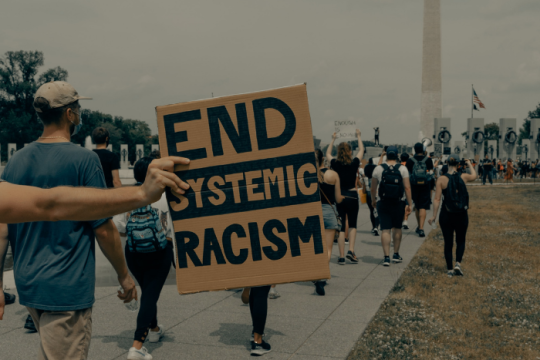
“I have no pleasure in the death of the wicked, but that the wicked turn away from his life and live” (Ezekiel 33:11). In the Jewish tradition, the sanctity of all human lives is a primary value. Prisoners who have served an appropriate sentence are deserving of a second chance at a meaningful and productive life, and the criminal justice system should adequately prepare them to do so.
“There is none on earth so righteous as to only do good and never sin” (Ecclesiastes 7:20). As human beings, we are all fallible and all have made mistakes. We believe in the power of redemption, and support a criminal justice system that offers second chances.
Canadian history and current experiences have been marred by injustices perpetrated against Communities of Color. Black Canadians have been subjected to racially segregated housing and their disproportionate presence in lower-paying jobs, among other injustices. Indigenous Canadians continue to struggle with the effects of forced assimilation policies rooted in a coordinated effort to deny and erase their heritage and culture. The now-repudiated residential school system, present day poor health care and education services, and higher rates of unemployment all continue to impact Canada’s Indigenous population. Canadians of Color in other communities also experience racism and discrimination.
Particularly when it comes to the criminal justice system, Black and Indigenous Canadians have been negatively impacted by mandatory minimum penalties. Mandatory minimums apply to a range of offences and the number of mandatory minimum penalties under federal law was seven times larger in 2020 than it was in 1995. Yet studies shows that while such penalties do not meaningfully deter crime, they have clearly coincided with an increase in the imprisonment of Black and Indigenous Canadians. A 2017 ten-year study on mandatory minimum penalties from Canada’s Department of Justice found clearly that Black and Indigenous offenders are overrepresented in admissions to federal custody.
In the Jewish tradition, the sanctity of all human lives is a primary value. Prisoners who have served an appropriate sentence are deserving of a second chance at a meaningful and productive life, and the criminal justice system should adequately prepare them to do so. We read in Ezekiel 33:11 “I have no pleasure in the death of the wicked, but that the wicked turn away from his life and live.”
Federal bill C-22 would repeal mandatory minimum penalties for some firearm offences and drug crimes. For those who do not pose a threat to the community, the proposed law would also make greater use of conditional sentences, counseling, and treatment, all of which include accountability while allowing the individual to maintain ties to communal support networks. While not perfect, the bill is a step in the right direction toward addressing the racial injustices inherent within mandatory minimum penalties.
More information and ways to take action will be shared soon. Please continue to check back for updates.
LEARN MORE ABOUT THE RACIAL JUSTICE CAMPAIGN

Freedom to Vote

Racial Justice Work Across the States

